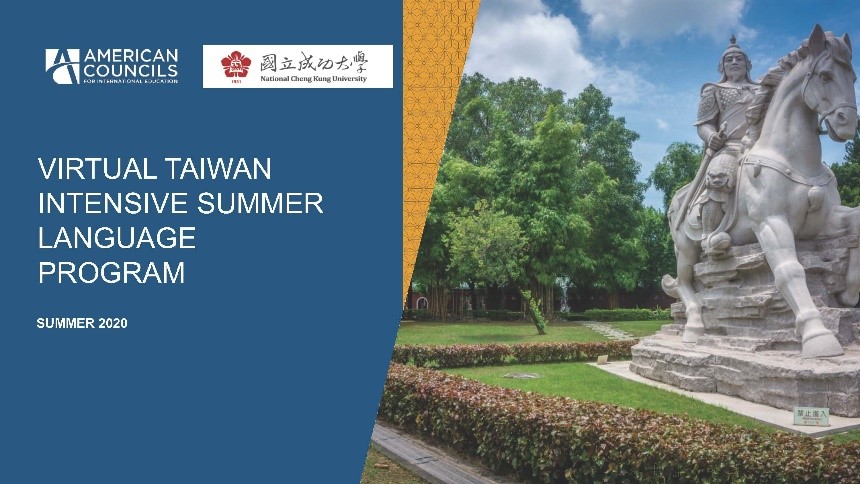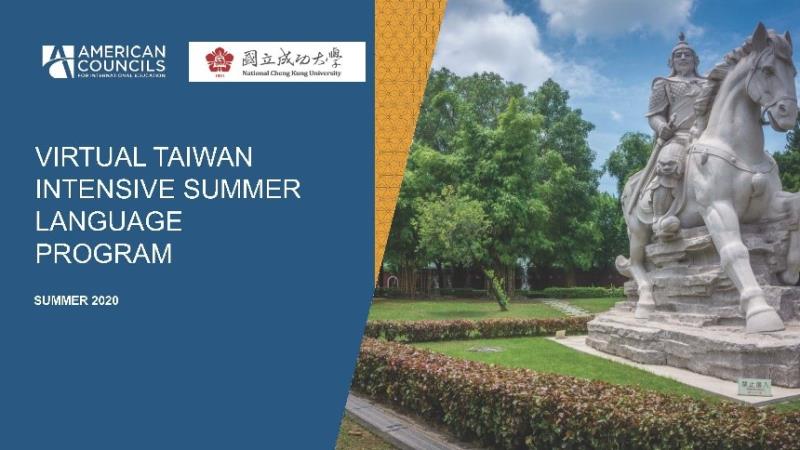Online 2021 Taiwan Intensive Summer Language Program Was Highly Successful

Concerns over COVID-19 variants resulted in many universities and colleges across the U.S. holding their courses online. At the beginning of the spring semester, many students expressed interest in studying in Taiwan in the 2021 Taiwan Intensive Summer Language Program (TISLP), jointly arranged by American Councils for International Education (ACIE) and the Education Division of the Taipei Economic and Cultural Representative Office in the United States (TECRO).
The students had already completed their visa applications, but then the outbreak of COVID-19 in Taiwan in May this year resulted in a wave of travel restrictions and participants in the Taiwan Intensive Summer Language Program (TISLP) would not be permitted to enter and study in Taiwan as originally planned. A decision was then made to offer TISLP online.
The decision was not easily made; but the Ministry of Education in Taiwan, ACIE, the Education Division of TECRO in the U.S., and the Chinese Language Center at National Cheng Kung University were able to develop and announce high-quality online versions of the TISLP programs to offer to applicants who were still interested in undertaking summer language and culture study in this mode.
The eight-week program was held online from June 21 to August 13, and it included the key components of a pre-program orientation, tailor-made academic programs, conversation partners, and online learning platforms.
The online Taiwan Intensive Summer Language Program was a great success in terms of the students’ academic progress, and the feedback received from the participants was highly positive. The Chinese Language Center at National Cheng Kung University conducted evaluations of participants’ pre-program and post-program written and oral proficiency, and participants at all levels demonstrated very strong growth in their language skills. They averaged an improvement of a full sublevel on the ACTFL proficiency scale for listening and for reading, and the evaluations of their oral proficiency demonstrated even more significant progress.

